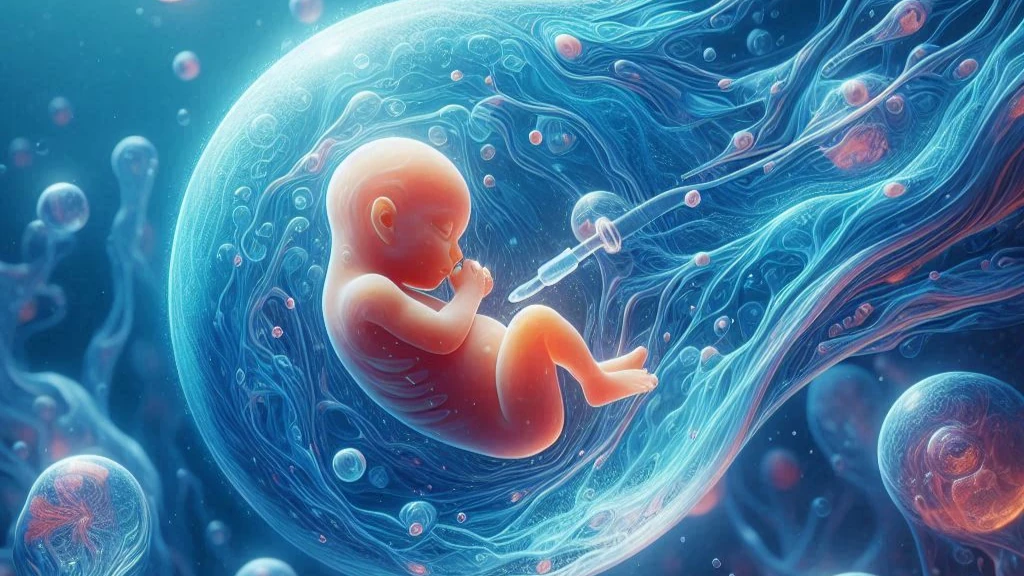Menopause, a natural biological transition, marks the end of a woman’s reproductive years. While often associated with physical changes and emotional shifts, it’s also a time of profound transformation and new beginnings. This article aims to demystify menopause and post-menopause, exploring the symptoms, hormonal changes, and management strategies, and empowering women to embrace this phase of life with grace, vitality, and a renewed sense of self.
Understanding Menopause: A Natural Transition
Menopause is defined as the permanent cessation of menstruation, confirmed after 12 consecutive months without a period. It’s a natural biological process, not a disease, marking the end of ovarian function and the decline in estrogen and progesterone production.
- Perimenopause: The transitional phase leading up to menopause, characterized by fluctuating hormone levels and irregular periods.
- Menopause: The point when menstruation ceases completely.
- Post-Menopause: The period after menopause, when hormone levels remain consistently low.
The Symphony of Symptoms: Navigating the Changes
The decline in estrogen and progesterone can lead to a range of symptoms, varying in intensity and duration.
- Hot Flashes: Sudden sensations of warmth, often accompanied by sweating and flushing.
- Night Sweats: Hot flashes that occur during sleep, disrupting sleep patterns.
- Vaginal Dryness: Thinning and drying of vaginal tissues, leading to discomfort during intercourse.
- Sleep Disturbances: Insomnia, difficulty falling asleep, or frequent awakenings.
- Mood Changes: Irritability, anxiety, depression, or mood swings.
- Changes in Libido: Decreased sexual desire.
- Cognitive Changes: Difficulty concentrating, memory lapses, or “brain fog.”
- Changes in Menstrual Cycle: Irregular periods, heavier or lighter bleeding, or spotting.
- Joint and Muscle Pain: Aches and pains in the joints and muscles.
- Weight Gain: Changes in metabolism and body composition.
- Thinning Hair and Dry Skin: Reduced estrogen levels can affect hair and skin health.
Hormonal Shifts: The Underlying Mechanism
The primary driver of menopause symptoms is the decline in ovarian function and the subsequent decrease in estrogen and progesterone production.
- Estrogen: Plays a crucial role in regulating the menstrual cycle, bone health, cardiovascular health, and mood.
- Progesterone: Prepares the uterus for pregnancy and helps regulate mood.
- Follicle-Stimulating Hormone (FSH): Levels increase as the ovaries become less responsive.
- Luteinizing Hormone (LH): Levels may also increase.
Management Strategies: Embracing Wellness
Managing menopause symptoms involves a holistic approach that addresses physical, emotional, and lifestyle factors.
- Hormone Therapy (HT):
- Involves taking estrogen and/or progesterone to replace declining hormone levels.
- Can effectively relieve hot flashes, night sweats, and vaginal dryness.
- Carries potential risks, such as increased risk of blood clots, stroke, and certain cancers.
- Should be discussed thoroughly with a healthcare provider.
- Non-Hormonal Medications:
- Certain medications can help manage specific symptoms, such as hot flashes or mood changes.
- Examples include selective serotonin reuptake inhibitors (SSRIs) and gabapentin.
- Lifestyle Modifications:
- Healthy Diet: Focus on whole foods, fruits, vegetables, lean protein, and healthy fats.
- Regular Exercise: Engage in aerobic exercise, strength training, and flexibility exercises.
- Stress Management: Practice relaxation techniques, such as meditation, yoga, or deep breathing.
- Adequate Sleep: Prioritize sleep hygiene and create a relaxing bedtime routine.
- Avoid Triggers: Identify and avoid triggers for hot flashes, such as spicy foods, caffeine, and alcohol.
- Maintain a Healthy Weight: Weight management can help alleviate symptoms and reduce the risk of chronic diseases.
- Pelvic Floor Exercises: Strengthen pelvic floor muscles to improve bladder control and vaginal health.
- Complementary and Alternative Therapies:
- Acupuncture, massage, and herbal remedies may provide some relief for certain symptoms.
- Discuss these options with your healthcare provider.
- Vaginal Moisturizers and Lubricants:
- Can help alleviate vaginal dryness and discomfort.
Post-Menopause: A New Chapter
Post-menopause is a time of transition and adaptation. While some symptoms may persist, many women experience a renewed sense of freedom and well-being.
- Focus on Long-Term Health:
- Maintain a healthy lifestyle to reduce the risk of chronic diseases, such as osteoporosis, heart disease, and certain cancers.
- Regular health screenings are essential.
- Embrace New Interests and Activities:
- Explore new hobbies, travel, or volunteer opportunities.
- This is a time to rediscover passions and pursue personal growth.
- Nurture Relationships:
- Maintain strong social connections and relationships.
- Seek support from loved ones and support groups.
- Prioritize Self-Care:
- Engage in activities that promote relaxation and well-being.
- Practice mindfulness and self-compassion.
The Emotional Landscape: Navigating the Changes
Menopause can be an emotionally challenging time, marked by feelings of loss, change, and uncertainty. It’s essential to:
- Acknowledge Your Feelings: It’s normal to experience a range of emotions.
- Seek Support: Talk to your partner, family, friends, or a therapist.
- Join Support Groups: Connect with other women experiencing menopause.
- Practice Self-Compassion: Be kind and patient with yourself during this transition.
The Importance of Open Communication
Open communication with your healthcare provider is crucial for managing menopause symptoms and addressing any concerns.
- Discuss your symptoms and treatment options.
- Ask questions and seek clarification.
- Share your concerns and preferences.
Conclusion
Menopause and post-menopause are natural transitions that offer opportunities for growth, self-discovery, and renewed vitality. By understanding the symptoms, hormonal changes, and management strategies, women can navigate this phase of life with grace and confidence. Embrace the second spring, and celebrate the wisdom and strength that come with this transformative journey





